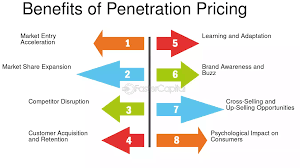
A loan against property is a financial product that enables an individual to leverage the value of their property to meet their financial needs. With this type of loan, the borrower can avail a large sum of money as per the value of their property offered as collateral. A loan against property is a secured loan that offers a low interest rate and a longer repayment tenure. This loan can be used for various purposes, such as business expansion, medical expenses, and education, among others.
When applying for a loan against property, there are certain documents that the borrower needs to submit to the lender. These documents required for loan against property verify the identity, income, and ownership of the property and ascertain the value of the property. In this article, we will discuss in detail the loan against property documents required during the processing of the loan.
Loan against Property Documents Required
Application form:
The first and foremost document that needs to be submitted is the application form. This document contains the personal and financial details of the borrower. Furthermore, it contains the details of the property offered as collateral.
Identity proof:
The borrower needs to submit a government-recognized identity proof such as a PAN card, Aadhaar card, passport, or driving license.
Address proof:
Along with the identity proof, the borrower needs to submit an address proof such as a utility bill, bank statement, or rent agreement.
Income proof:
Loan against property is a secured loan, but the borrower needs to furnish their income proof. The borrower can submit their salary slips, income tax returns, or Form 16.
Property ownership proof:
To avail a loan against property, the borrower needs to have full ownership of the property. The borrower has to submit the property documents such as sale deed, property tax receipts, property registration documents, among others, to prove their ownership.
Property valuation report:
The lender evaluates the property to ascertain its true market value. The borrower needs to provide a property valuation report from a certified valuer. The valuation report helps the lender in deciding the loan amount that can be disbursed against the property.
Property documents:
The borrower needs to submit the property documents such as the blueprint of the property, NOC from the housing society, encumbrance certificate, and area statement.
Bank statements:
The borrower needs to submit their bank statements of the last six months. This helps the lender in scrutinizing the borrower’s financial status, expenses, and loan repayment capacity.
Business proof:
If the borrower is self-employed, they need to submit their business proof, such as their business registration certificate, service tax certificate, or a partnership deed.
Guarantor’s documents:
In some cases, the lender may ask for a guarantor’s documents. The guarantor needs to submit their identity proof, address proof, income proof, and bank statements.
Once the borrower has submitted all the loan against property documents required, the lender initiates the loan processing. The lender checks the documents to verify the identity, income, and ownership of the borrower and the property. Furthermore, the lender evaluates the property documents, property valuation report, and bank statements to understand the creditworthiness of the borrower. Based on the documents submitted, the lender sanctions the loan amount.
How Loan against Property Interest Rates Affect Your EMIs
Interest rate is the cost of borrowing money, and it plays a crucial role in determining the loan amount and the repayment tenure. The interest rate on a loan against property is relatively lower as compared to other unsecured loans as it is secured by the property offered as collateral. The loan against property interest rates can vary from lender to lender and generally starts from 8.50% per annum. The interest rate may also depend on the loan amount, repayment tenure, and the credit score and credit history of the borrower.
The loan against property interest rates can be of two types — fixed and floating. In the fixed rate of interest, the interest rate remains unchanged throughout the loan tenure, while in the floating rate of interest, the interest rate varies as per the market conditions. The borrower can choose the type of interest rate while availing the loan.
Benefits of Loan against Property
Lower interest rates:
The interest rate on a loan against property is relatively lower as compared to other unsecured loans.
Large loan amount:
The loan amount offered in a loan against property is higher as compared to other unsecured loans. The borrower can avail a loan based on the value of the property offered as collateral.
Longer repayment tenure:
The loan against property offers a longer repayment tenure of up to 20 years, which makes it easier for the borrower to repay the loan.
Flexible use of funds:
The borrower can use the loan amount for various purposes such as business expansion, medical expenses, education, among others.
In Conclusion
A loan against property is a secured loan that enables the borrower to leverage the value of their property to meet their financial needs. The loan against property documents required verifies the identity, income, and ownership of the borrower and property. The property loan interest rates are lower as compared to other unsecured loans, and the loan amount and repayment tenure are flexible.
The loan against property is a good financial option for those who require a large sum of money and are willing to offer their property as collateral. However, the borrower needs to ensure that they repay the loan on time, failing to do so can lead to legal consequences and the risk of losing their property. Read more blogs on our website.









